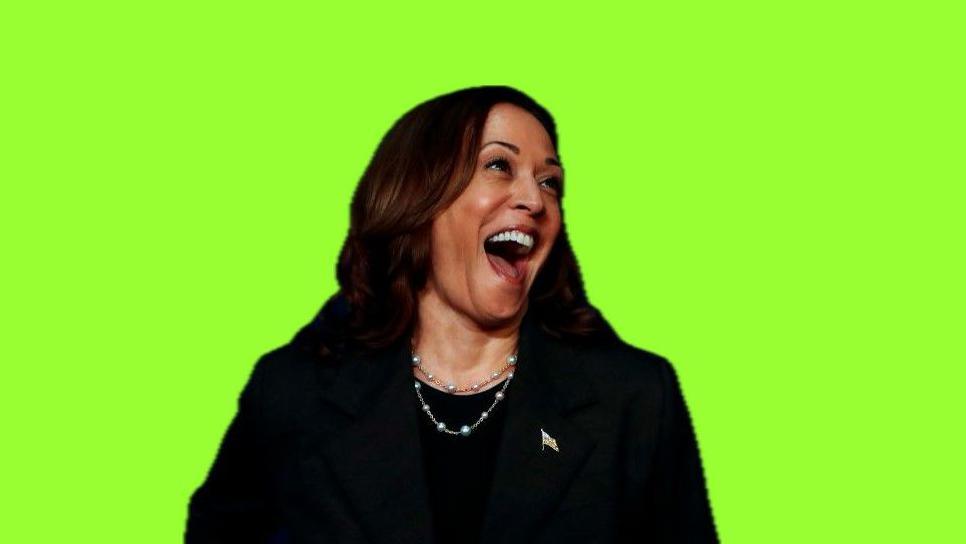Vulnerable, messy and bratty: The pop girlies having a moment
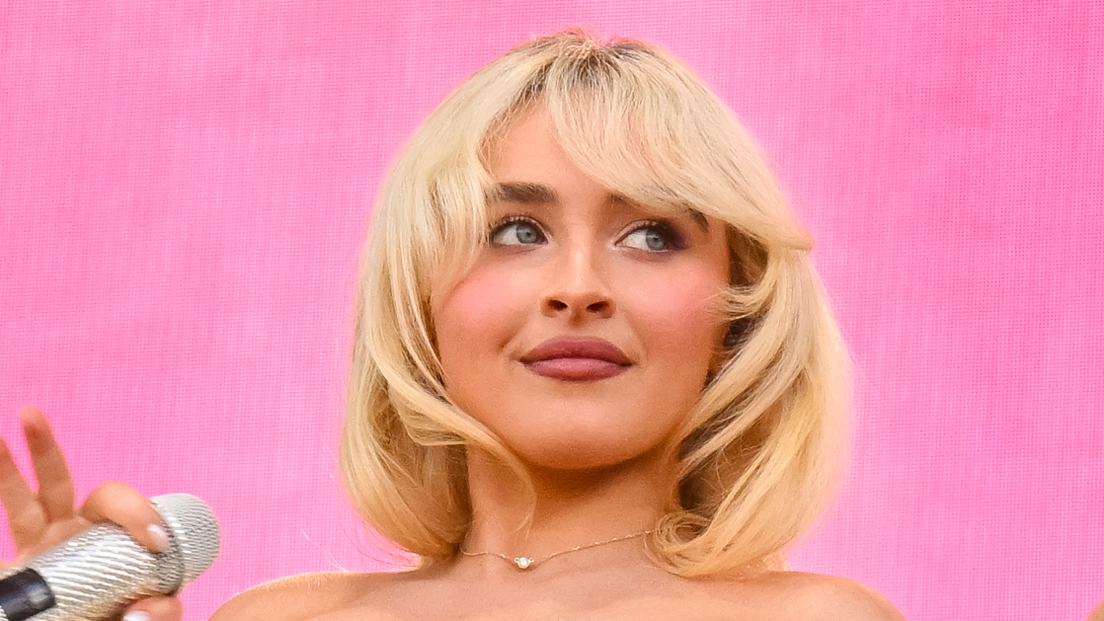
Sabrina Carpenter is one of the new wave of pop girlies taking the internet by storm
- Published
"It's so confusing sometimes to be a girl," sings Charli XCX on her latest album, Brat.
The vulnerable lyrics, existential questions and honest exploration of the complexity and contradictions of womanhood has turned Brat into much more than a collection of music.
For millennials and Gen Z, it reflects a highly relatable way of life.
Brat is, in the words of Charli XCX, a girl who "has a breakdown, but kind of like parties through it", who is honest, blunt, "a little bit volatile". In recent weeks, brat has become a mainstream phenomenon.
In the same week that my grandmother told me one of her friends was "giving brat", Charli tweeted "Kamala IS brat" and the US Democratic presidential nominee rebranded her X profile.

Kamala Harris's team changed her X picture to match the slime green background of the Brat album
Charli isn't the only pop girl ditching the bland approach.
The likes of Chappell Roan and Sabrina Carpenter aren’t your typical perfectly polished and carefully manicured pop stars: they’re messy and candid artists who wear their hearts on their sleeves. Both have been dominating the charts this summer.
They all stand out because they share a certain perspective on life. They appear honest and authentic, with opinions and life experience.
There are only so many times you can bop to songs with slick beats and meaningless mantras about girl power. Eventually you crave something more, and that’s what this new wave of pop girl is offering.
On Brat, Charli candidly explores what it’s like transitioning into your thirties. On her truth-telling hit Von Dutch she doesn’t care if people gossip about her, while her high-energy anthems 360 and 365 are wild, carefree and tell us that we can still have big nights out (phew!).
At the same time, she offers a personal and introspective reflection on topics such as Motherhood: "I think about it all the time / That I might run out of time / Would it give my life a new purpose?"
The existential questions resonate with most millennial women. Should I be having children? When is the right time? Will it change my life? What if I have other aspirations?
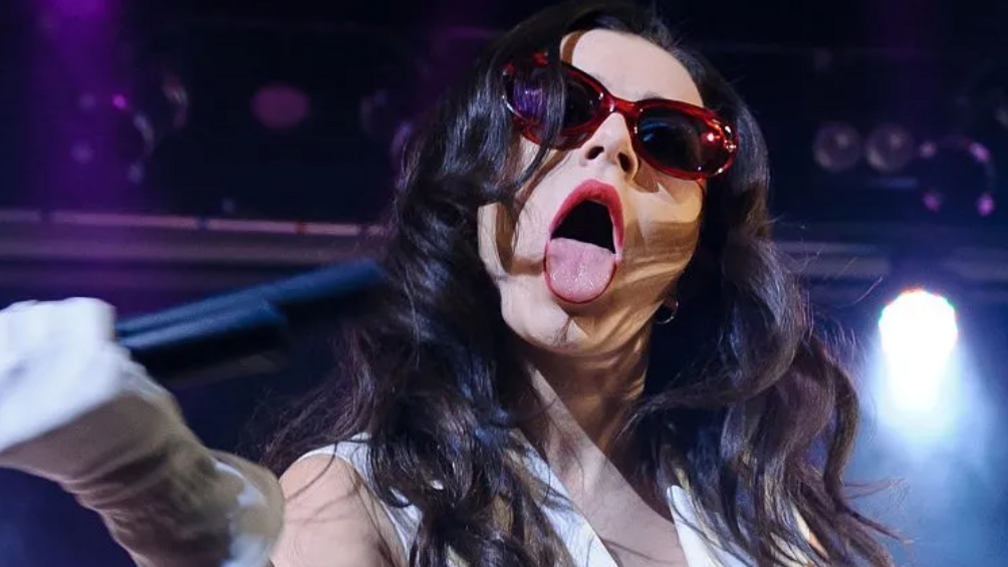
Charli's earlier hits include Boom Clap, Boys, 1999 and Beg For You
Josee Malon, a 23-year-old social executive from Kent, says she admires Charli because she gives fans "such an insightful look into her creative mindset and her personality and you don’t get this with all musicians".
"Beyoncé, for example, is private and mysterious. Some people think that's part of her allure and appeal, but for me that works against her. Why would I want to be influenced by someone who gives me zero energy?
"Charli XCX gives 110% energy, she lets you into her life and feels like a friend."
It’s not just women who are fans of these pop girls. Spencer Caminsky, a 26-year-old political campaign manager, has followed Charli since 2016 and loves Brat because "it’s so much more raw and direct".
"It’s all the great things about her past works and now expands upon the more vulnerable aspects of her life that she’s never spoken about - you really feel her emotion and regret."
Meanwhile, 26-year-old queer pop icon Chappell Roan has built a strong Gen Z following.
Although not the first queer female pop artist, her drag queen outfits, sexually empowered lyrics and scorching-hot melodies make her one of the most mainstream.
Chappell's music focuses heavily on her queer identity - Pink Pony Club was inspired by her first visit to a gay club, while Good Luck, Babe is about a fling with a girl who insists she's not really gay.
Jonah Graham, 25, says he's a fan of Chappell's "unashamedly queer" music because she "lets people know there is a place for them to come together through big emotions, an irreverent sense of humour and boundless joy".
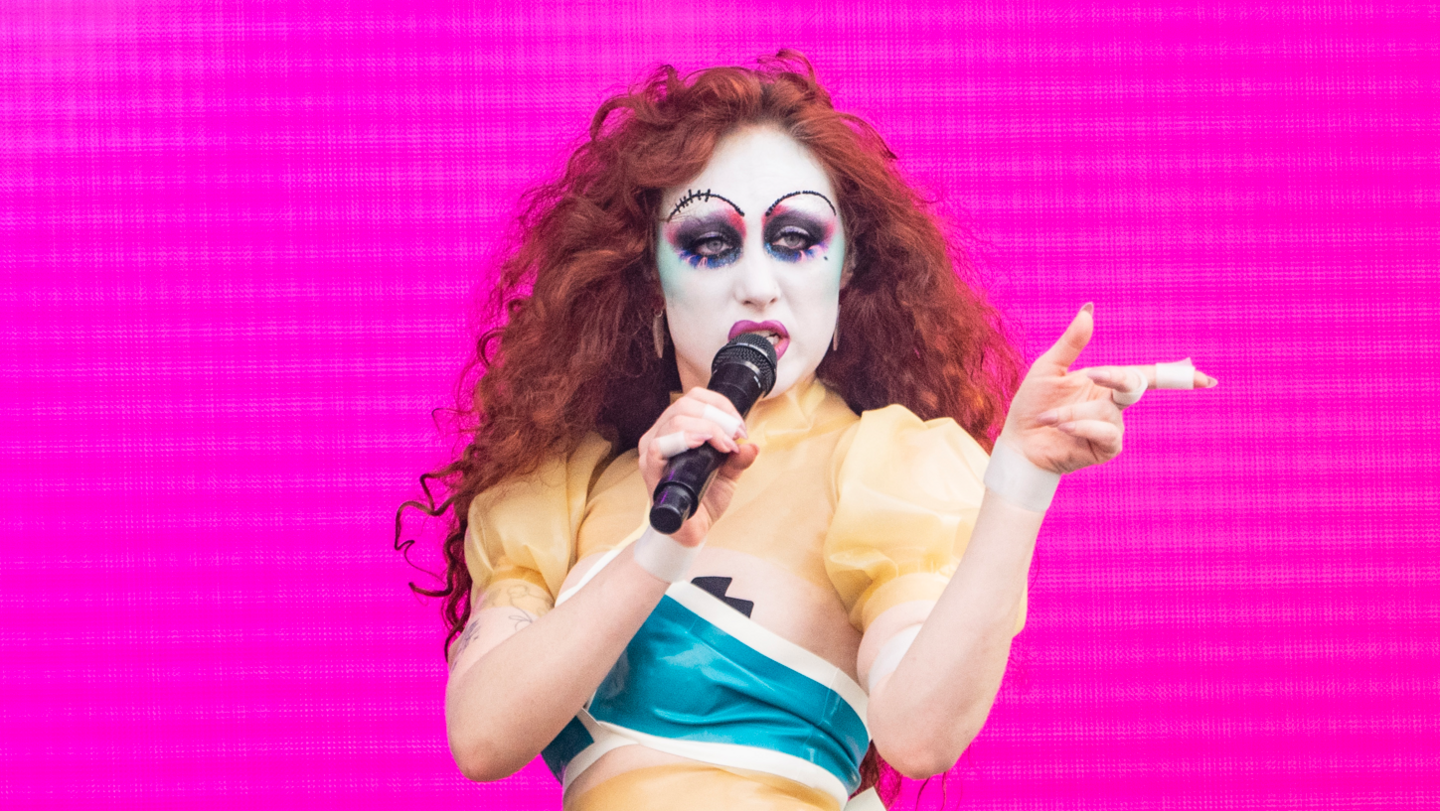
Roan was brought up in a conservative family where she attended church three times a week and was taught that being gay was a sin
But even without having the same experiences that Chappell sings of, the themes of rejection, freedom, acceptance and self-discovery are universal.
Kamala Harris has also leaned into Roan in a bid to appeal to young voters, posting a meme on TikTok quoting Roan’s lyrics: "What we really need is a femininomenon!"
While Ms Harris isn’t part of the demographic that Chappell and Charli resonate most with, and almost certainly isn’t "someone who has a pack of cigs, a Bic lighter and a strappy white top with no bra", according to Charli’s brat definition, that isn't the point.
Lucy Ford, a culture critic, told the BBC that "Kamala is brat in the sense that she's a dominating cultural force right now and there’s been a separation from the album and the cultural hold it has as a vibe".
Fun and cheeky pop music is something Sabrina Carpenter has become a master in - the 25-year-old has taken Taylor Swift's confessional style and added a healthy dose of humour.
More on Sabrina Carpenter
Sabrina Carpenter fans priced out by 'astronomical' ticket costs
- Published24 July 2024
Carpenter at one and two on UK singles chart
- Published21 June 2024
Singer Sabrina Carpenter breaks UK chart record
- Published5 July 2024
Her x-rated ad-lib Nonsense outros never fail to cause a stir. "BBC said I should keep it PG / BBC I wish I had it in me / There’s a double meaning if you dig deep," she sang at Radio 1's Big Weekend.
"Sabrina is being unabashedly horny in her music," Ford explains. "It feels like an embrace of fun and silliness and not taking things too seriously."
In other songs, she flips the typical romantic pop song on its head. This time he's obsessed with her, and "looks so cute wrapped round my finger".
Her self-indulgence - and being unapologetic about loving attention - is totally brat. Why should we pretend that knowing someone has a crush on you isn't a little exciting?
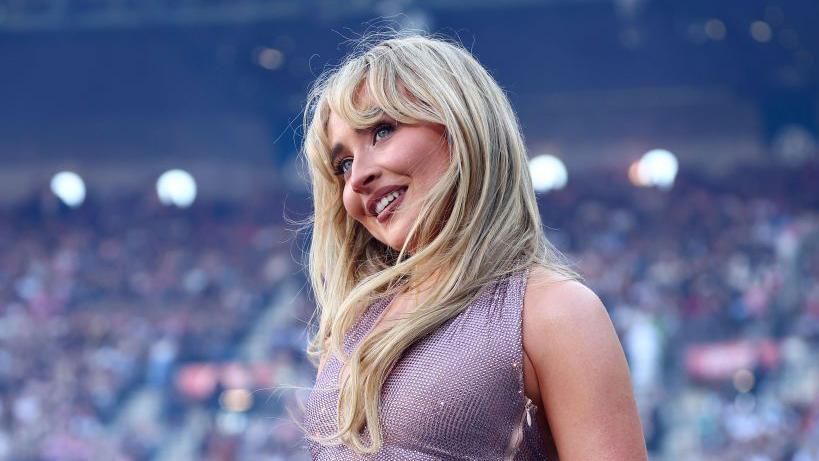
Carpenter is the first female artist to hold both the number one and number two positions on the singles chart for three consecutive weeks
'Distraction from the daily pressures of adult-ing'
But why is it that, this summer in particular, fans are craving complex, messy music?
Content writer Olivia Cox has recently got into all three artists and says what makes them stand out is that they each, in their own way, "embrace silliness".
“It feels like pop music has been taking itself too seriously," she says.
Rachel Humphreys, a 29-year-old Digital PR Manager from Pontefract in West Yorkshire, says the artists are a "cultural reset" and offer an element of escapism.
The music is a "welcome distraction from the daily pressures of adult-ing".
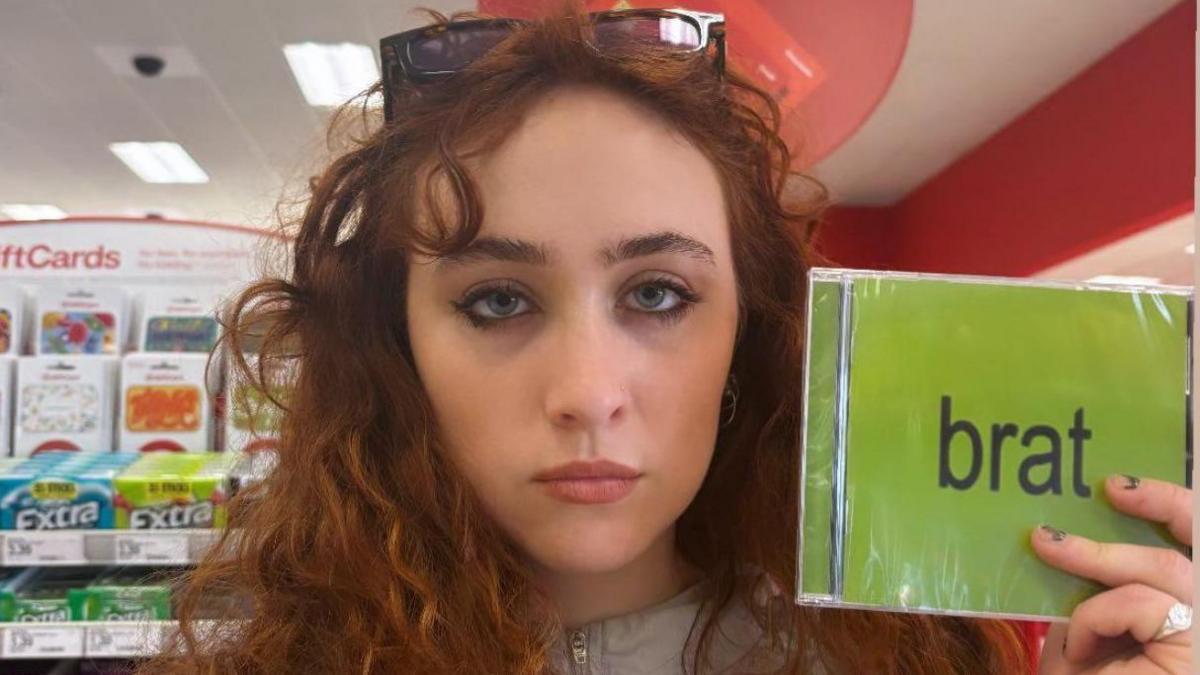
Chappell Roan shared a picture of herself with the brat album on Instagram
Ford says one of the factors for why this phenomenon is occurring now, is that it’s a "response to very sentimental, 'celebrities, they're just like us' sentiments in music of the past few years, where artists bare their souls to meet their fans at eye level".
All of these reasons point to why the dated feminist slogans - like those in Katy Perry's latest single Woman's World - don’t resonate with millennials or Gen Z.
Perry's satirical music video, showing women dancing around a construction site in tiny outfits, using urinals and brandishing sex toys, seems inauthentic compared with music by these Gen Z artists.
But the smart, forthright pop songs we’re listening to now are not as new as we might think.
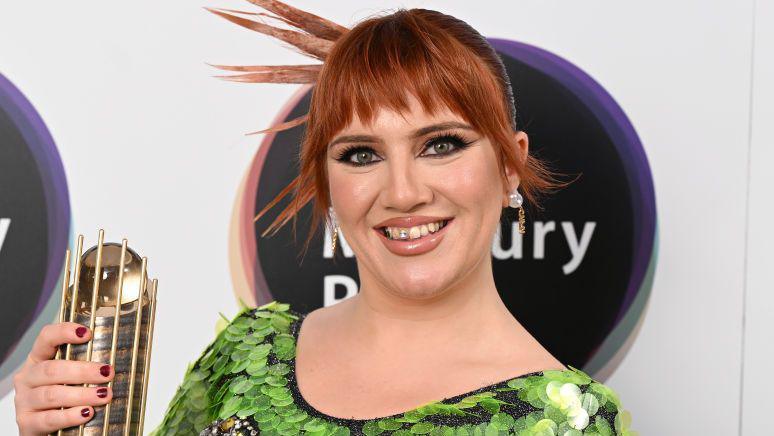
The country-pop singer CMAT told the BBC that women have always been writing humorous lyrics
Mercury Prize nominee CMAT told the BBC "there's nothing sudden" about this phenomenon.
"Women have always been crafting stories in this funny, tragi-comic way, but the people who wanted to hear it were other women - who, up until recently, were not considered a very [desirable] market."
She said her own music was criticised a few years ago and labelled "novelty music" because it was humorous.
"There was never a conversation before about it being highbrow or something we should take seriously - because nobody takes women seriously," she added.
The likes of Madonna and Lady Gaga laid the groundwork for this music, but the modern trend starts with the likes of Lorde, who punctured the absurd positivity of 2010s pop lyrics on Team - "I'm kind of over getting told to put my hands up in the air" - and Billie Eilish.
One of her first songs was written from the point of view of a psychopath with a car trunk full of dead bodies.
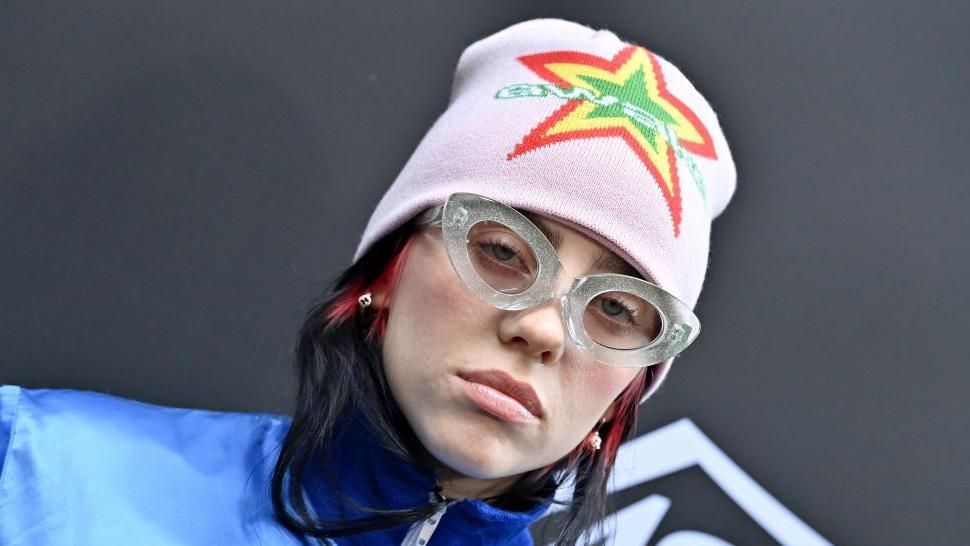
Billie Eilish has won two Oscars for best original song
Her music has carried on being wonderfully weird – every track on her new album Hit Me Hard And Soft plays with that duality.
Dynamics shift, ideas are unresolved and nothing ever settles.
That’s a feeling that many people will have felt a little over the past couple of years.
To achieve longevity, today's brats will need to intuit when the sands of pop, and of wider culture, will shift again - and get there before everyone else.
Additional reporting by Mark Savage.
Related topics
You might also be interested in
- Published24 July 2024
